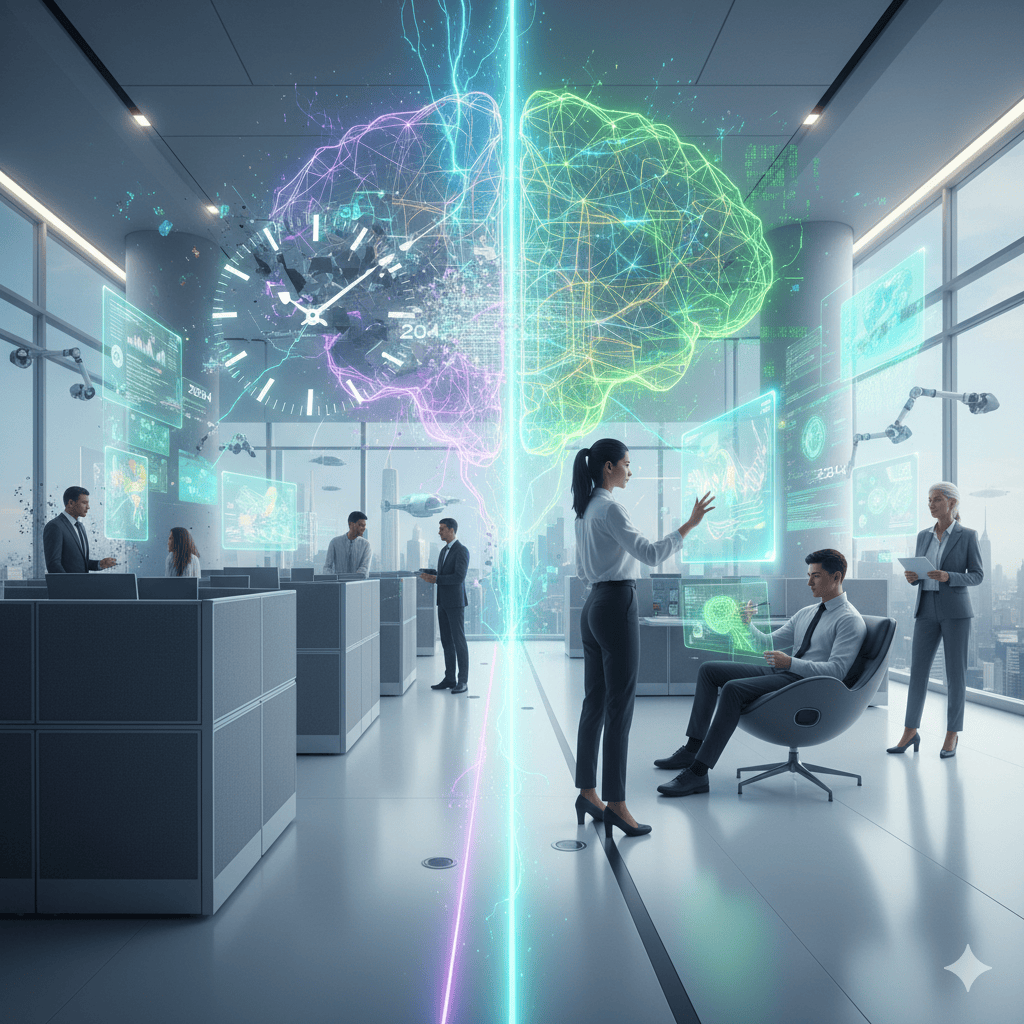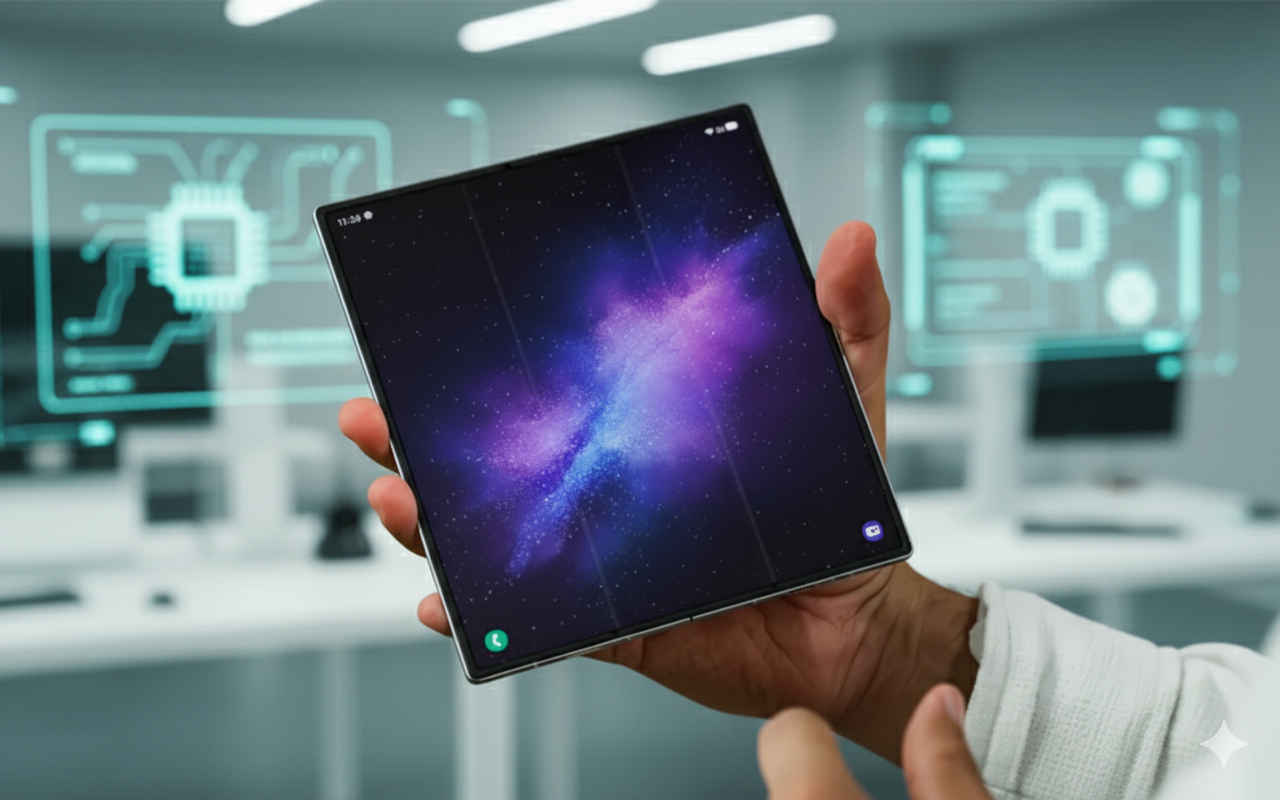Reid Hoffman Predicts the End of the 9-to-5 Job: How AI Will Reshape Work and Careers by 2034
Reid Hoffman, the co-founder of LinkedIn, has long been known for his uncanny ability to anticipate future trends. In the late 1990s, he foresaw the rise of social networks well before Facebook ever existed. Later, he recognized the potential of the gig economy and invested in companies such as Airbnb. He also spoke about the transformative power of artificial intelligence long before most people grasped its scope.
Today, Hoffman is making another bold prediction: by 2034, traditional office jobs will be a thing of the past. He believes the classic 9-to-5 routine will lose its dominance as AI technologies reshape how people earn money, shifting the focus away from conventional employment models toward flexible, digital-first work structures.
The Decline of the Traditional Office Job
According to Hoffman, the old idea of employees tied to office desks is on its way out. In the United States, fewer than half of the workforce will be tied to corporate offices by the next decade. Instead, professionals will increasingly work remotely, either as freelancers or in flexible roles that allow them to choose where and when they work.
This shift isn’t simply about convenience—it’s powered by technology. With the rise of video conferencing, cloud-based collaboration tools, and AI-driven assistants, companies no longer need to physically gather employees under one roof. On the employee side, many professionals prefer the freedom of remote work to the daily grind of long commutes and rigid schedules.
Automation and the Rise of Meaningful Work
One of the most powerful forces driving this transformation is automation. AI already performs repetitive tasks such as data entry, scheduling, and customer service far more efficiently than humans. While some fear that this means widespread job losses, Hoffman views it differently:
“AI won’t eliminate jobs—it will reshape them,” he argues.
Instead of performing repetitive tasks, workers will shift toward creative, problem-solving, and strategic roles. In this future, careers will be built on human ingenuity and innovation, not mundane tasks.
Rethinking How People Are Hired
Hoffman also predicts a radical change in the hiring process. Companies will rely less on resumes and college degrees and more on a candidate’s practical experience, digital portfolio, and online professional reputation.
Future recruitment systems, powered by AI, will evaluate a person’s past projects, digital footprint, and skills rather than simply their job titles or academic credentials. In other words, your online presence and professional contributions will matter more than the name of your university.
Multiple Streams of Income Will Become the Norm
In tomorrow’s economy, most people won’t rely on a single job. Instead, they’ll build diverse income streams: a part-time role here, freelance projects there, side hustles, or even small investments.
This approach can be exciting—it offers flexibility and independence—but it also comes with challenges. Without the stability of a traditional job, individuals will need to constantly adapt, learn new skills, and juggle multiple roles. For some, this fluid lifestyle will be empowering; for others, it may feel overwhelming.
The Hidden Challenges of the Remote-First World
While the AI-driven workplace offers incredible opportunities, Hoffman acknowledges the challenges. Working without the structure of an office means people must:
-
- Manage their own time effectively
- Build relationships independently
- Stay competitive in a fast-changing market
The line between work and personal life may blur, making work-life balance harder to achieve. Those who fail to adapt may struggle, while early adopters who embrace change will enjoy a major advantage.
AI and the Future of Graduate Jobs
Hoffman offers a striking perspective on how AI will reshape entry-level roles.
“Any job that requires a human to behave like a robot will eventually be mastered by robots,” he explains.
Customer service positions that involve repetitive interactions are already being replaced by chatbots and AI-driven assistants. But perhaps more surprising is his view on engineering jobs for fresh graduates.
In the future, every knowledge worker will have a software assistant. Instead of hiring junior engineers to write code, companies will rely on AI agents. This doesn’t mean engineers will disappear—quite the opposite. Those who understand computing will become more valuable, but their role will shift from coding to managing and directing AI agents.
Hoffman points to history for reassurance. When spreadsheets were first introduced, many feared accountants would vanish. Instead, accounting evolved into higher-value work: scenario planning, risk modeling, and advisory services. AI, he argues, will do the same for fields like customer service and engineering.
A Double-Edged Sword for New Graduates
For new graduates entering the workforce, this trend may feel alarming. Fewer traditional entry-level roles mean a tougher start to careers. Yet Hoffman sees an opportunity: this generation can grow up working alongside AI assistants, learning to leverage these tools from the start.
The real test, he suggests, is whether society treats this as a warning or as an opportunity. The reported 16% decline in entry-level jobs could signal long-term erosion of youth opportunities—or it could be a short-term shock that forces us to rebuild smarter career pathways.
Ultimately, the outcome depends less on AI’s raw capabilities and more on how quickly companies, institutions, and workers adapt.
The Broader Impact of AI on Professional Life
AI’s influence won’t stop at offices and job descriptions—it will ripple across the economy and everyday life. Hoffman highlights several major shifts likely to occur:
1. Increased Consumer Spending
As AI boosts efficiency and profitability, prices may drop. In the long run, consumers will enjoy greater purchasing power, unlocking access to goods and services that were once too expensive. This could raise living standards globally.
2. A Historic Productivity Boom
Financial giant JP Morgan Chase predicts AI could spark the largest productivity surge since the invention of the steam engine, electricity, or the personal computer. Unlike past technologies that took decades to deliver economic returns, AI is already reshaping workflows at lightning speed. Professionals will need to align their career focus with this new reality.
3. Shift Toward Quality and Value
With AI reducing costs and improving production, high-quality products at lower prices will become widely available. As a result, consumer focus will shift from price alone to factors like durability, brand reputation, and long-term value.
Final Thoughts: Preparing for the AI Workforce Revolution
Reid Hoffman’s predictions serve as both a wake-up call and an invitation. The 9-to-5 office job is fading, automation is redefining roles, and AI is already transforming industries at record speed.
For individuals, success in this new era will depend on:
-
- Building diverse skills across industries
- Developing a strong digital presence and professional portfolio
- Learning to work with AI as a partner, not a competitor
- Embracing flexibility and continuous growth
The question is no longer whether AI will change work—but how we choose to respond. Those who adapt quickly will thrive in a future where creativity, problem-solving, and adaptability are the most valuable currencies.



